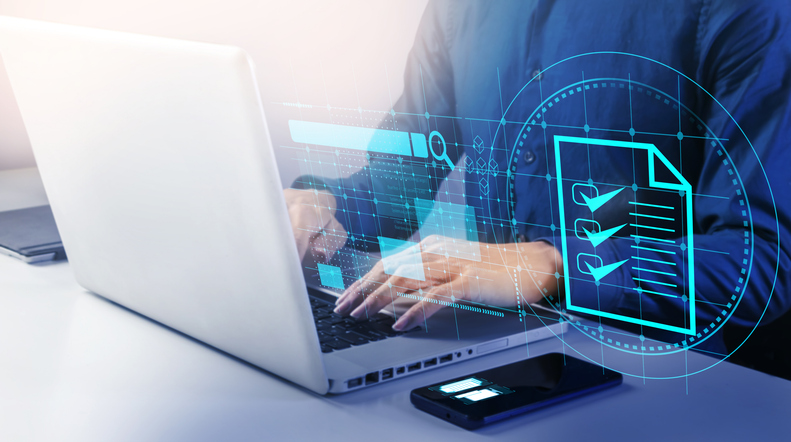
Why Backups And AntiVirus Are Not Enough To Protect Your Business From Hackers
Whether you're a retailer or a healthcare organisation, a small business or a large one, it's fair to say that every company is a technology company today. In the last two years, home working has accelerated at an unprecedented rate, and, more than ever, employees and consumers alike are looking to digital touchpoints to interact with brands,communicate with colleagues and get their work done.
Underpinning every digital experience is data. It's often sensitive in nature: trade secrets, customer details, employee information. All of this data is a goldmine for cybercriminals. As a business, you have a responsibility to your customers,employees and stakeholders to ensure you keep this data safe.
Not only that, but a data breach could cost you. According to IBM, in 2022, theaverage cost of a data breach was AU $3.35 million per breach, increasing by 9.8% from the prior year.
You might think that because you have antivirus and backups in place, that you're safe from the threat of a cyber-attack. Unfortunately, this is not the case. In today's complex technology landscape, basic protection only goes so far.
Below,we will explore the shortcomings of antivirus and backups, how your company should use them and what else you need to consider for thorough protection.
What Is Antivirus?
Antivirus software protects the devices on your corporate network from common forms of malware. It's a foundational part of effective cyber security, but it's not a be-all and end-all.
Indeed,basic antivirus only protects against known forms of malware. Cybercriminals,though, are savvy. They are constantly creating and generating new forms of malware that antivirus won't catch, meaning it doesn't protect your company from all the threats out there.
WatchGuard found that, during Q1 2021 74% of threats it detected were zero-day malware, meaning many types of antivirus solutions did not catch them when the malware first launched.
What Are Backups?
Backup sare replicas of your company files stored in a separate location. In a power outage or cyber attack, backups will ensure that important company information isn't lost. Like antivirus, backups are an important part of an effective cybersecurity strategy.
However,backups are inherently reactive controls. They can't prevent cyber attacks at all. They just help you to recover. Even then, backups can be tricky to navigate. If your solution is clunky, old, or not updated regularly, you could find that your company has lost files when you go through restoration.
You Need Holistic Cyber Security Strategy
We're not saying that you shouldn't use backups or antivirus. You definitely should.We're saying that backups and antivirus should be part of a more extensive,more comprehensive approach to cyber security. To achieve protection, you need a holistic approach that includes the following.
- Email Protection
Email and collaboration tools are the backbone of employee communication in the work-from-home world. Hackers know this, and they often send cyber attacks via email. Be it a phishing or malware attack, your employees' inboxes are a risk to company security.
To defend against these threats, you should consider implementing an email protection solution that automatically scans in and outbound mail traffic andredacts or flags suspicious-looking content.
- Firewall
Firewall sare security devices that analyse inbound and outbound network traffic. The firewall will then prevent or allow specific traffic based on pre-configuredrules. Essentially, your firewall acts as a gatekeeper between your company network and the wider internet, ensuring that only trusted sources and data are allowed to interact with your company infrastructure.
- Cloud Configurations
Google Drive, Teams and Slack are all standard in the modern workplace. However, they're also potent for data leakage and theft. Just one wrongly configured Google Sheet could enable anyone on theInternet to access sensitive company data. It's therefore paramount to ensure that your cloud tools are properly and securely configured.
- Two-Factor Authentication And Least Privilege
Despite common advice, many people re-use the same password for multiple accounts. If that password ends up in a data breach, an opportunistic hacker could use it to access corporate assets.
To protect against this, we recommend two things. First, you should enforce two-factor authentication for employees with access to sensitive files. Second, you should ensure that your employees can only access the data, files, and resources they need to do their job.
- Training And Policy
We have all accidentally sent an email to the wrong person. Well, research fromStanford University found that approximately 88% of all data breaches are caused by an employee mistake.
While no company can completely eradicate human error, a good training programme can go a long way in reducing it. Whether you opt for an online training solution or an in-person away day, you should ensure that you educate your employees on security hygiene.
We Are Here To Help!
We provide business cyber security support to small and medium businesses, so your company can focus on what it does best.
To learn more about how Xpresstex managed IT services can help you, please call u son 1 300 991 030 or contact us online.



